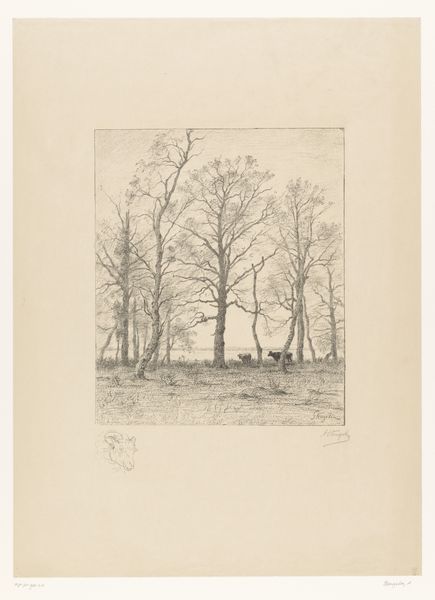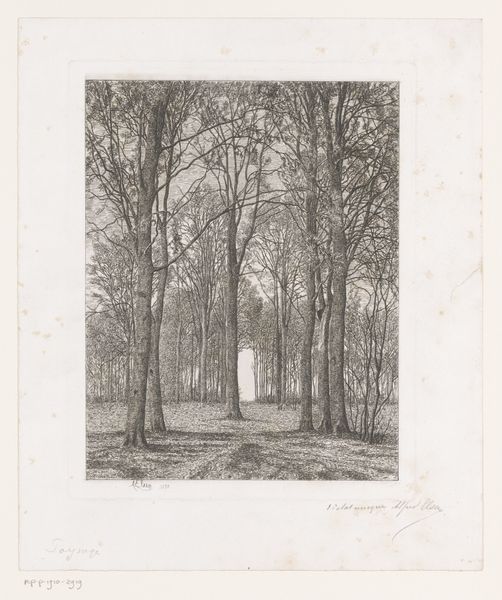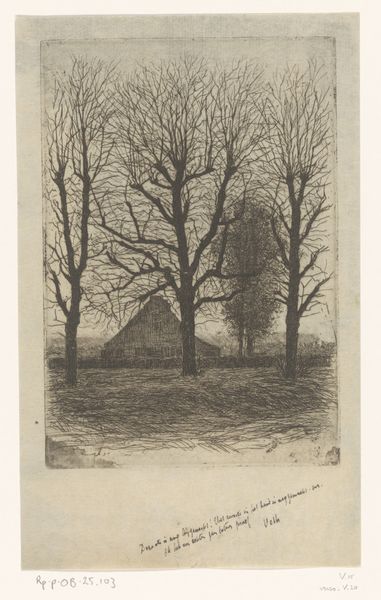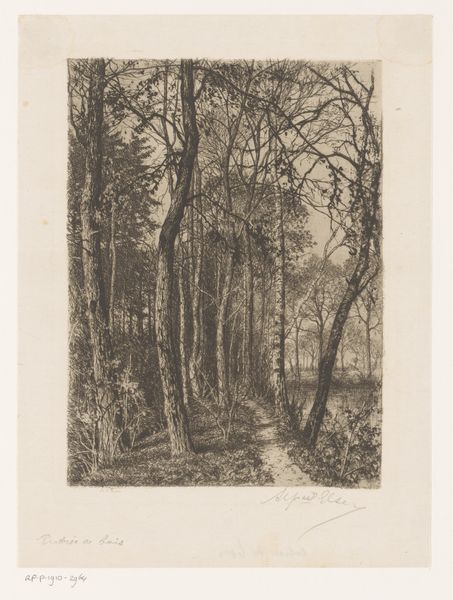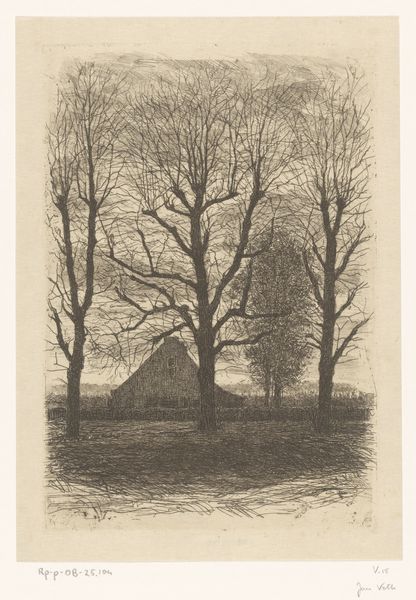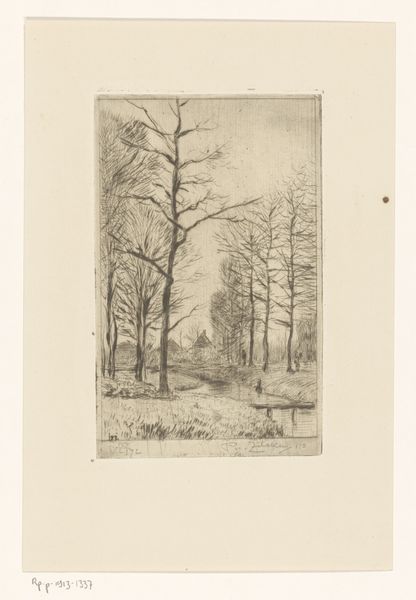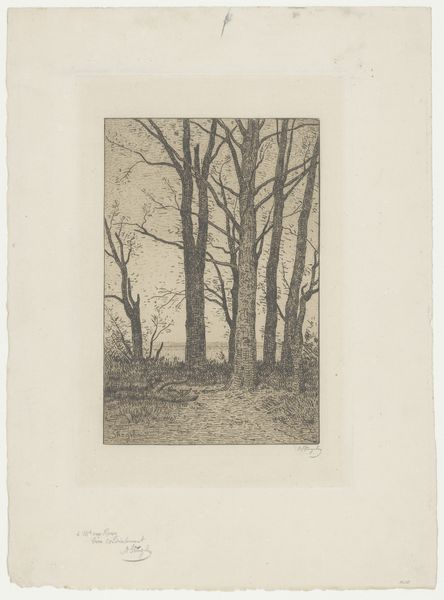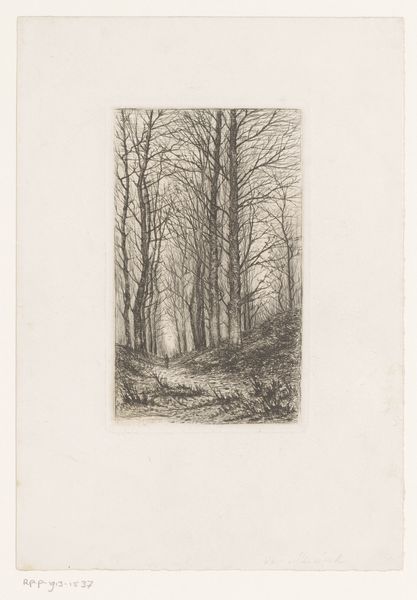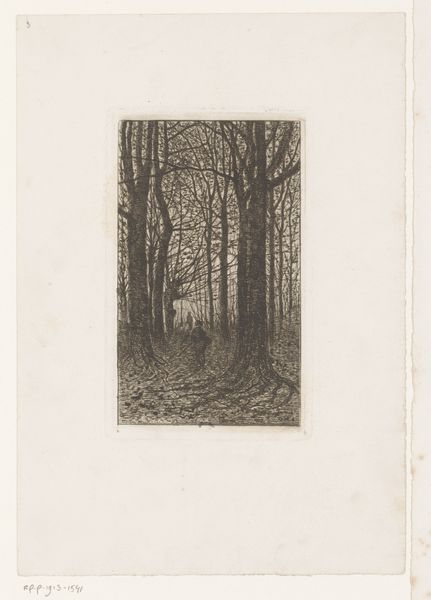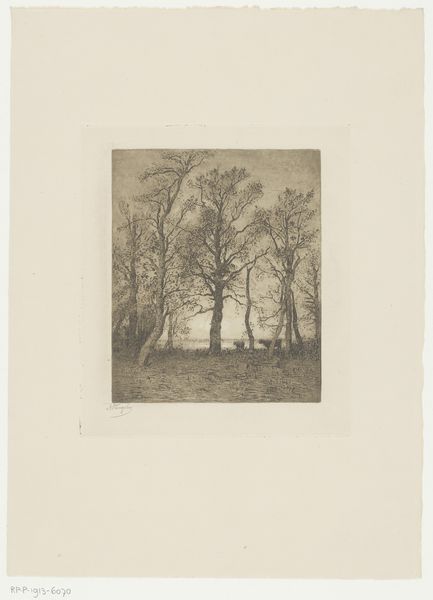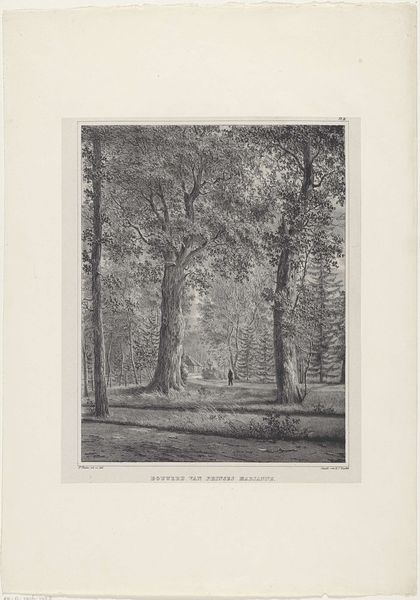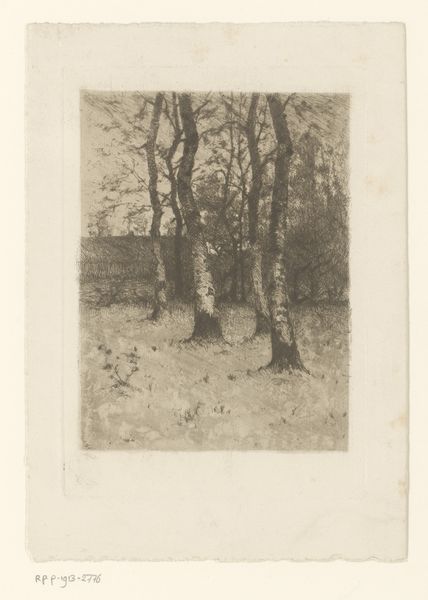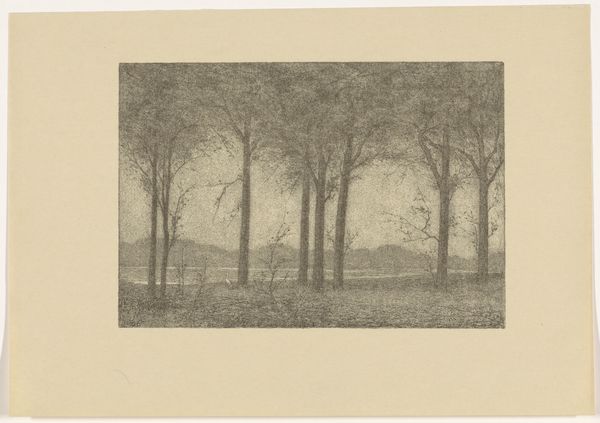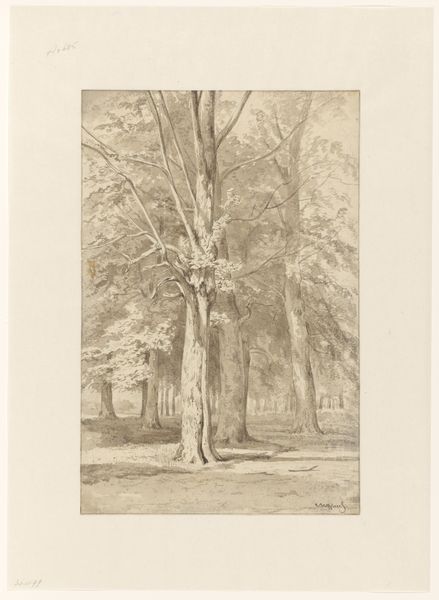
drawing, print, etching
#
tree
#
drawing
# print
#
etching
#
landscape
#
linocut print
#
pen-ink sketch
#
cityscape
Dimensions: height 400 mm, width 318 mm
Copyright: Rijks Museum: Open Domain
Gerrit Haverkamp made this print of the Pieterskerk in Leiden using etching, a process that intimately connects material and image. Etching begins with a metal plate covered in a waxy, acid-resistant ground. The artist scratches an image into this ground, exposing the metal beneath. When the plate is submerged in acid, the exposed lines are eaten away, creating recessed lines. Ink is then applied to the plate, filling these lines, and the surface is wiped clean. Finally, the plate is pressed onto paper, transferring the ink and creating the print. The material properties of the metal, the acid, and the paper all influence the final image. The depth of the etched lines determines the darkness of the printed lines, while the quality of the paper affects the clarity and texture of the print. The controlled degradation of the metal by the acid speaks to the effects of time, and it’s a laborious method that stands in contrast to the speed of modern image production. Considering these material processes allows us to appreciate not only the image itself, but also the labor, skill, and time involved in its creation.
Comments
No comments
Be the first to comment and join the conversation on the ultimate creative platform.
